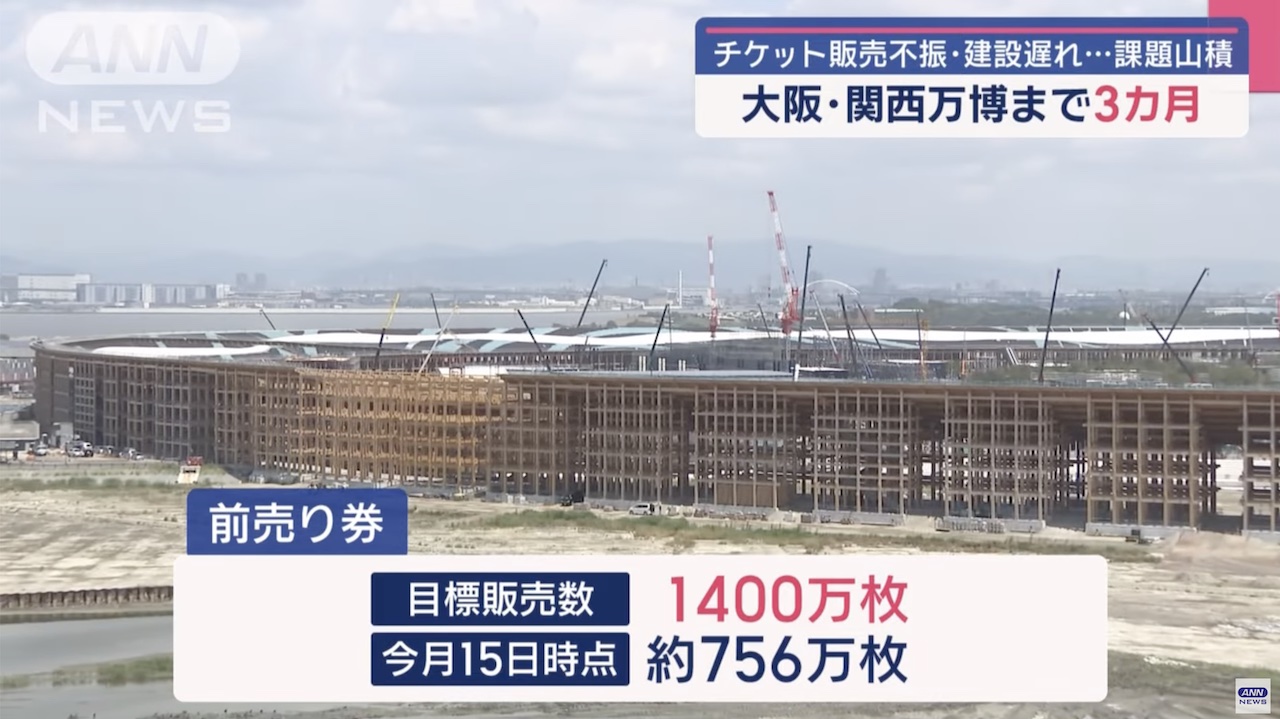OSAKA, Jan 19 (News On Japan) - The Osaka-Kansai Expo is three months away and challenges remain in areas such as pavilion construction and ticket sales.
On January 19th, Yumeshima Station in Osaka opened to the public. It is the only railway station providing direct access to the Expo site. The first visitor to purchase a ticket commented, “I got ticket number 0001. I started lining up at 7:30 p.m. yesterday. As a Kansai native, I’m really looking forward to the Expo.” During the Expo, the station is expected to handle up to 130,000 visitors daily.
This will be Osaka's second time hosting the Expo since 1970. The previous event featured highlights such as "moon rocks" and a "human washing machine," showcasing Japan’s postwar recovery to the world. This year’s Expo will see participation from 158 countries and regions. With the opening approaching, Prime Minister Ishiba visited the venue and shared his reflections, “I remember lining up for hours to see the moon rocks as a middle school student. It was just a rock, though.” Governor Yoshimura responded with humor, “Moon rocks back then. This time, it’s Mars rocks.”
The Japanese Pavilion will feature one of the world’s largest Mars rocks, collected by a Japanese Antarctic observation team. Other exhibits, such as a “flying car,” aim to provide a glimpse into future lifestyles. Prime Minister Ishiba, also serving as the Expo’s honorary chairman, expressed high hopes, “This will be a place where each visitor can feel alive and dream about Japan’s future. I’m confident many people will leave wanting to come back.”
Despite the anticipation, issues have surfaced. A Portuguese representative remarked, “Ticket sales aren’t anywhere near the target.” The Expo’s operational costs, approximately 116 billion yen, rely heavily on ticket revenue. Pre-sale ticket sales were targeted at 14 million, but as of January 15th, just over half have been sold. Governor Yoshimura acknowledged the difficulty, “Hitting 14 million before the opening is a very ambitious goal.”
Other concerns involve visitor experience. In the 1970 Expo, long lines under the summer heat led to widespread discomfort. This time, organizers aim for a “line-free Expo” with a reservation system. However, this approach has drawn criticism from participating countries. A Dutch representative noted, “The ticket purchase process is too complicated for international visitors.”
The system requires visitors to first register an Expo ID, then purchase tickets and reserve entry dates. Additional reservations for pavilions or events involve a lottery system, adding uncertainty. Prime Minister Ishiba acknowledged the challenges, “We need a simpler system that people can trust. Bureaucratic solutions alone won’t work, so we need to adopt innovative ideas from the private sector.”
Pavilion construction is another pressing issue. Of the 42 planned facilities, only three countries have confirmed completion. Dimitri Kerkentzes, Secretary General of the Bureau International des Expositions, commented, “Unfortunately, delays are a recurring reality with Expos. However, I am confident the pavilions will be ready by the opening, and ticket sales will pick up.”
As Osaka prepares to host the Expo, it faces the dual challenge of inspiring hope for the future while overcoming the hurdles of the present. Mars rocks and futuristic visions await—but so do construction deadlines and ticket sales goals.
Source: ANN














